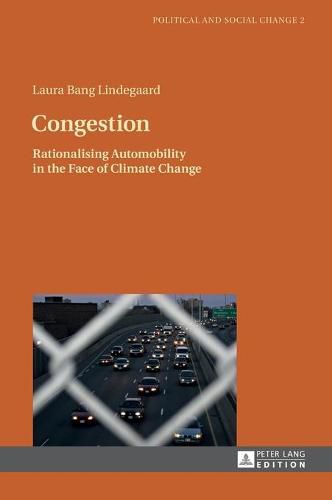Readings Newsletter
Become a Readings Member to make your shopping experience even easier.
Sign in or sign up for free!
You’re not far away from qualifying for FREE standard shipping within Australia
You’ve qualified for FREE standard shipping within Australia
The cart is loading…






This title is printed to order. This book may have been self-published. If so, we cannot guarantee the quality of the content. In the main most books will have gone through the editing process however some may not. We therefore suggest that you be aware of this before ordering this book. If in doubt check either the author or publisher’s details as we are unable to accept any returns unless they are faulty. Please contact us if you have any questions.
The book investigates the negotiation of governmental rationalities of car-dependent life in the face of climate change. It appears that current forms of governing are bound up with a specific utilisation of the freedom of the governed. Accordingly, the book demonstrates how the governing of automobility unfolds as people account for and, hence, conduct their transportation practices. In this way, it unravels how villagers in a small Danish village negotiate a municipal strategy and conduct their transportation practices in ways that merely sustain the villagers’ already maintained car-dependent life forms.
$9.00 standard shipping within Australia
FREE standard shipping within Australia for orders over $100.00
Express & International shipping calculated at checkout
Stock availability can be subject to change without notice. We recommend calling the shop or contacting our online team to check availability of low stock items. Please see our Shopping Online page for more details.
This title is printed to order. This book may have been self-published. If so, we cannot guarantee the quality of the content. In the main most books will have gone through the editing process however some may not. We therefore suggest that you be aware of this before ordering this book. If in doubt check either the author or publisher’s details as we are unable to accept any returns unless they are faulty. Please contact us if you have any questions.
The book investigates the negotiation of governmental rationalities of car-dependent life in the face of climate change. It appears that current forms of governing are bound up with a specific utilisation of the freedom of the governed. Accordingly, the book demonstrates how the governing of automobility unfolds as people account for and, hence, conduct their transportation practices. In this way, it unravels how villagers in a small Danish village negotiate a municipal strategy and conduct their transportation practices in ways that merely sustain the villagers’ already maintained car-dependent life forms.